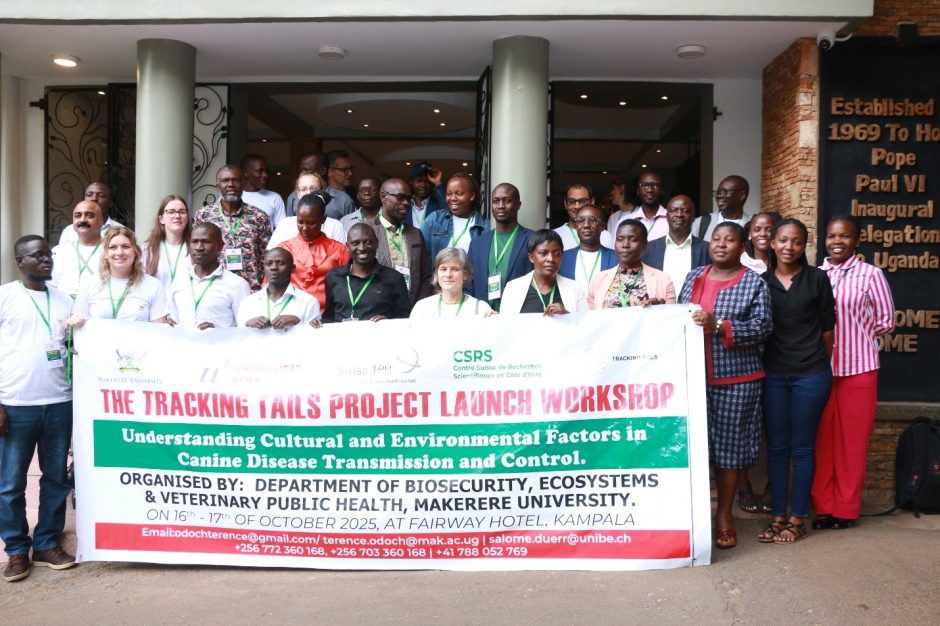Tracking Trails” Project Launched at Makerere University to Study Free-Roaming Dogs and Disease Spread Across Five Nations
In a groundbreaking advancement for zoonotic disease research, Makerere University’s College of Veterinary Medicine, Animal Resources and Biosecurity (CoVAB) inaugurated the Tracking Trails project, an ambitious, transnational research initiative that aims to expose the spatiotemporal dynamics of free-roaming dogs and their epidemiological implications, particularly concerning rabies.
This endeavor brings together expertise from Uganda, Chad, India, Indonesia, and Switzerland, exemplifying an ideal One Health model. It integrates epidemiology, ecology, veterinary medicine, genomics, and socio-cultural anthropology, forging a transdisciplinary approach to health that is as inclusive as it is innovative.
The project under the department of Biosecurity, Ecosystems and Veterinary Public Health at CoVAB was officially launched at Fairway Hotel in in Kampala on October 16th 2025, at a ceremony attended by a consortium of national and international collaborators.
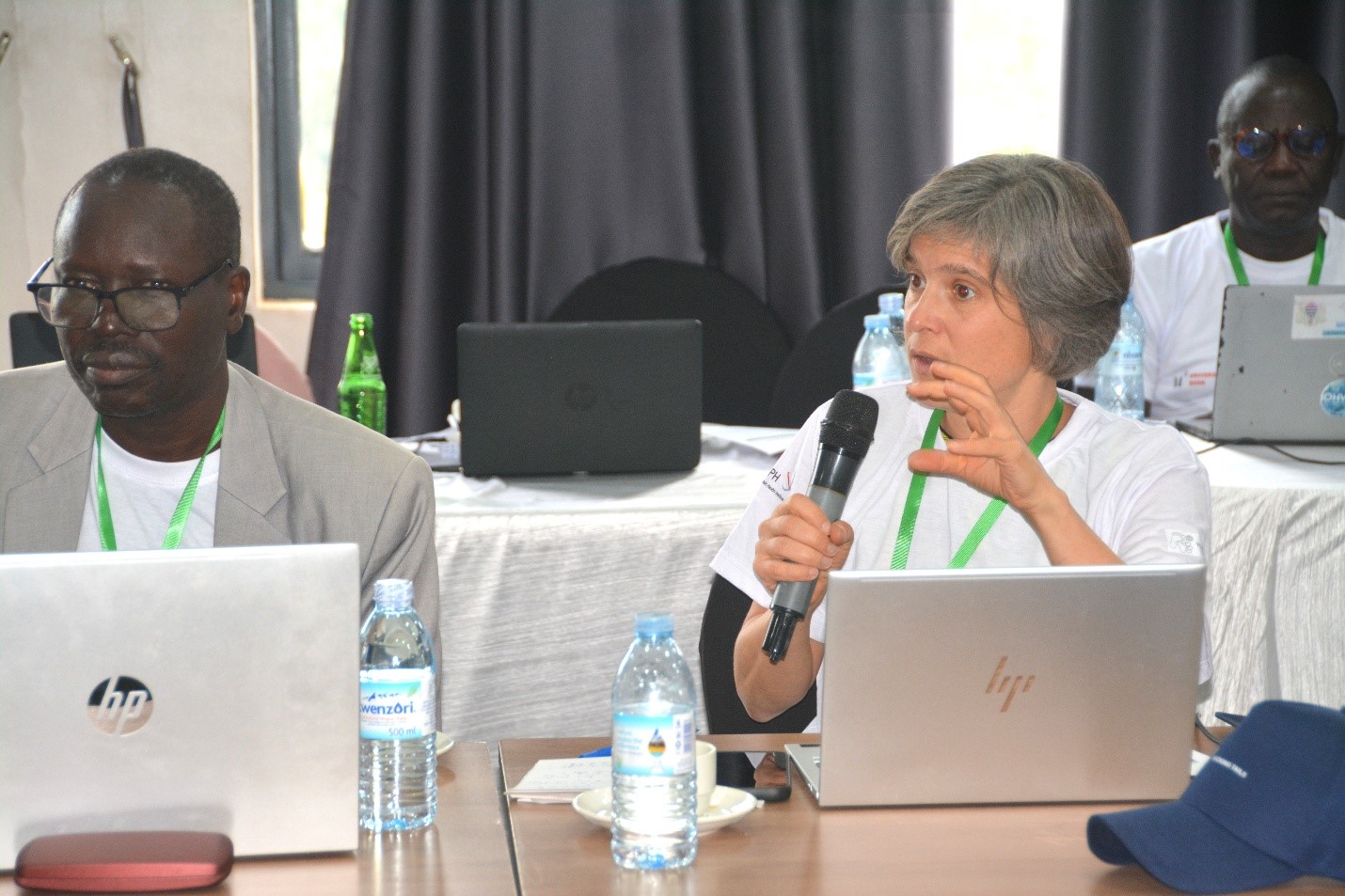
Dr. Terrence Odoch, CoVAB, Co-PI, Makerere University, and Dr. Salome Dürr of the University of Bern, the Principal Investigator, gave a brief about the project.
Dr. Salome Dürr of the University of Bern, the principal investigator, underscored the imperative of comprehending canine mobility not solely through the prism of rabies, but as a broader vector of zoonotic pathogen transmission. “Our inquiry transcends mere rabies surveillance, we intend to interrogate the health ramifications of canine movement,” she said.
Uganda as the Initial Epicenter
Uganda has been strategically designated as the inaugural locus for implementation, owing to its heterogeneous demographic fabric, divided into urban and rural ecosystems, alongside its ongoing national rabies eradication agenda. Research operations will span five districts of Kyegegwa, Masaka, Arua, Soroti, and Kampala, each offering varied ecological and socio-cultural matrices.
Dr. Terence Odoch, the Co – Principal Investigator from CoVAB Makerere University, emphasized the twofold imperative of generating actionable scientific evidence while concurrently cultivating academic capacity through the active inclusion of postgraduate cohorts.
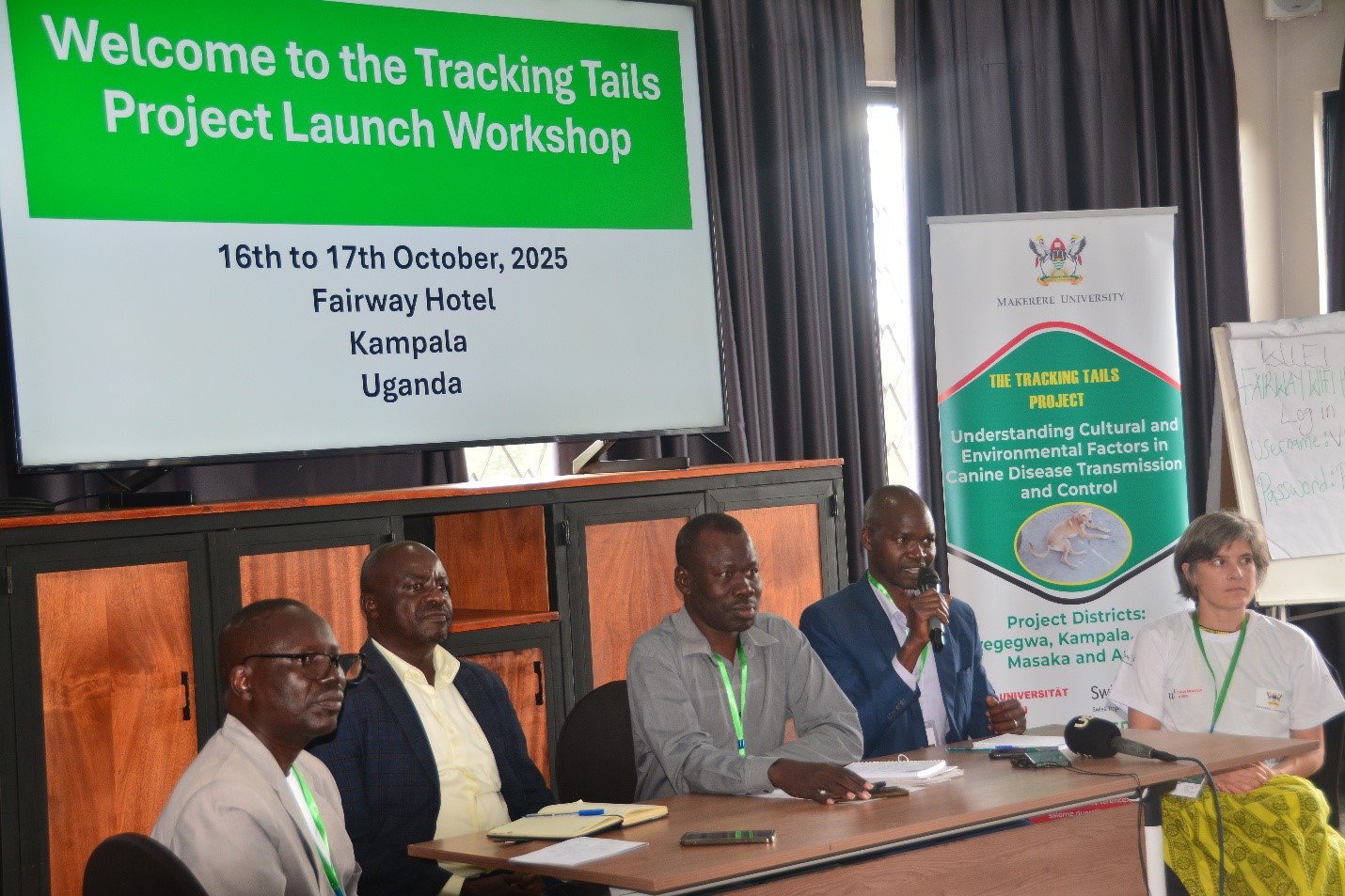
He said what distinguishes the Tracking Trails project is its integrative methodological representation that includes GPS telemetry, behavioral ecology, socio-cultural ethnography, and genomic analysis converge to address critical interrogatives, he said while giving a brief about the project. Why do dogs roam? In what ways are they embedded within human ecologies? Which movement vectors potentiate pathogen propagation? Interventions, he noted, must be established upon the understanding of these dynamics, rather than simplistic vaccination paradigms.
Contextual Complexity across Continents

A section of the implementers from the Districts who attended the launch and will play key roles
During the launch, the different implementing countries made brief report about the status of their intended interventions and the prevailing circumstances. It was reported that in Chad, nomadic pastoralism renders canine mobility both indispensable and problematic. Professor Fayiz Abakar emphasized that prior vaccination efforts in N’Djamena achieved epidemiologically significant coverage only when rendered cost-free, underscoring the primacy of accessibility and public engagement.
For India, one of the implementing countries, it was reported that this was a home to an estimated 60 million canines, struggling with a paradoxical cultural disposition that is also spiritual in nature coupled with neglect and abandonment. Dr. Harish Tiwari delineated contrasting rural-urban movement ecologies, revealing expanded urban ranges and increased aggression post-COVID.
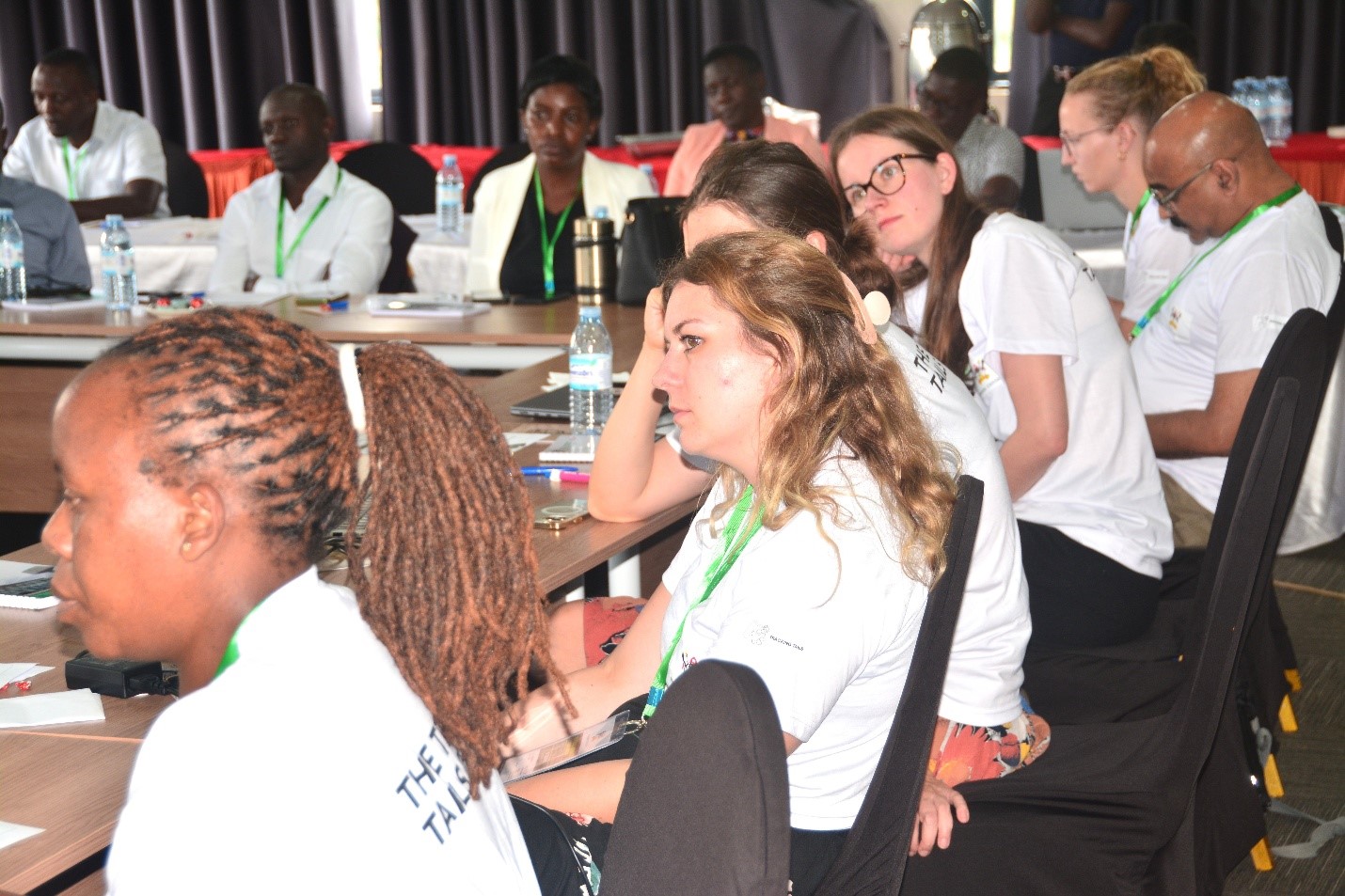
Some of the researchers that include PhD and Post Doc fellows taking part in the project were at the launch.
For the case of Indonesia, the situation of free roaming dogs was no any better given the socio-religiously complex set up and the endemic rabies in 26 provinces. Dr. Ewaldus Wera described distinctive behavioral adaptations in rural versus urban dogs across Flores, Lombok, and West Timor. Underscoring logistical impediments to surveillance in topographically inaccessible locales.
Rabies as a Persistent Global Threat
During the launch, officiated by CoVAB’s Deputy Principal Prof. James Acai Okwee on behalf of the Vice Chancellor, Prof. Barnabas Nawangwe , it was explained that rabies continues to pose a formidable public health threat, remaining a virulent zoonosis with a near-100% case fatality rate once clinical symptoms appear , despite being entirely preventable through timely prophylaxis.
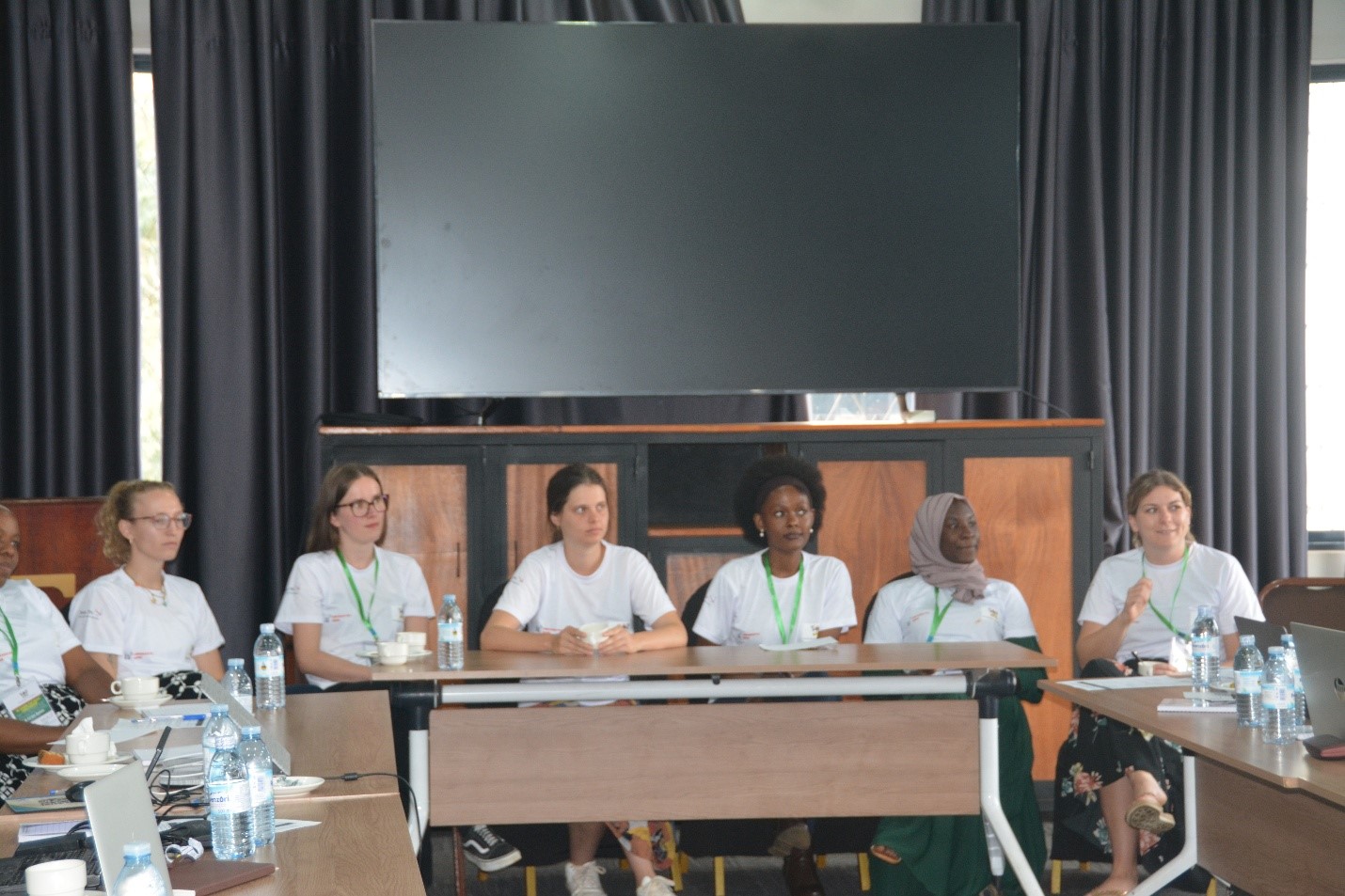
Local and international students react to issues raised after they presented their research concepts during the Launch seminar
Dr. Alfred Wejuli of Uganda’s Ministry of Health emphasized the urgent need for intersectoral collaboration under the One Health framework. He underscored that coordinated governance across human, animal, and environmental health sectors is indispensable for sustained disease mitigation and effective rabies control.
By equipping free-roaming dogs with GPS collars, researchers will gain real-time insights into canine movement patterns, enabling the mapping of trajectories, analysis of pack dynamics, home range variability, and interactions with human environments.
Academic and Institutional Capacity Building
Beyond empirical inquiry, the initiative is an incubator for emerging scholars. Makerere University and its partner institutions have embedded postgraduate training into the project’s architecture, equipping students with competencies in cross-disciplinary fieldwork, laboratory diagnostics, and community-based research.
Global Solidarity and Forward Trajectory
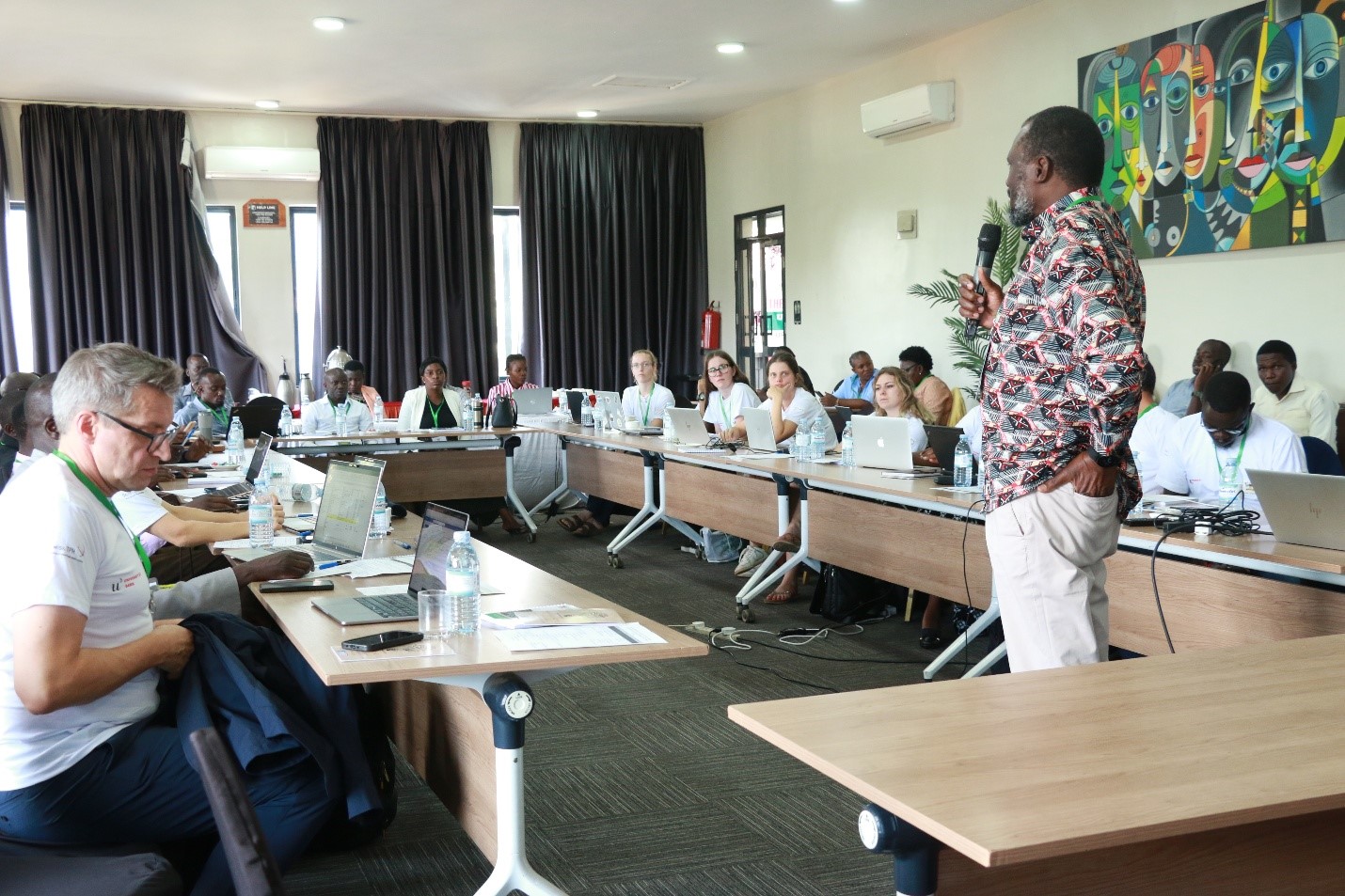
CoVAB Dr. Sam Okech moderated the sessions at the launch seminar
Notwithstanding anticipated challenges ranging from logistical constraints in remote terrains to sociocultural sensitivities, the Tracking Trails project offers an unprecedented confluence of innovation, collaboration, and public health utility. As it scales across Africa and Asia, it aspires to generate an empirically grounded, culturally attuned, and ethically informed blueprint for rabies control and canine population management.
Dr. Dürr encapsulated the initiative’s ethos: “Rabies transcends borders. Dog mobility defies administrative frontiers. To safeguard both human and animal health, a synergistic, global, and interdisciplinary response is imperative.”
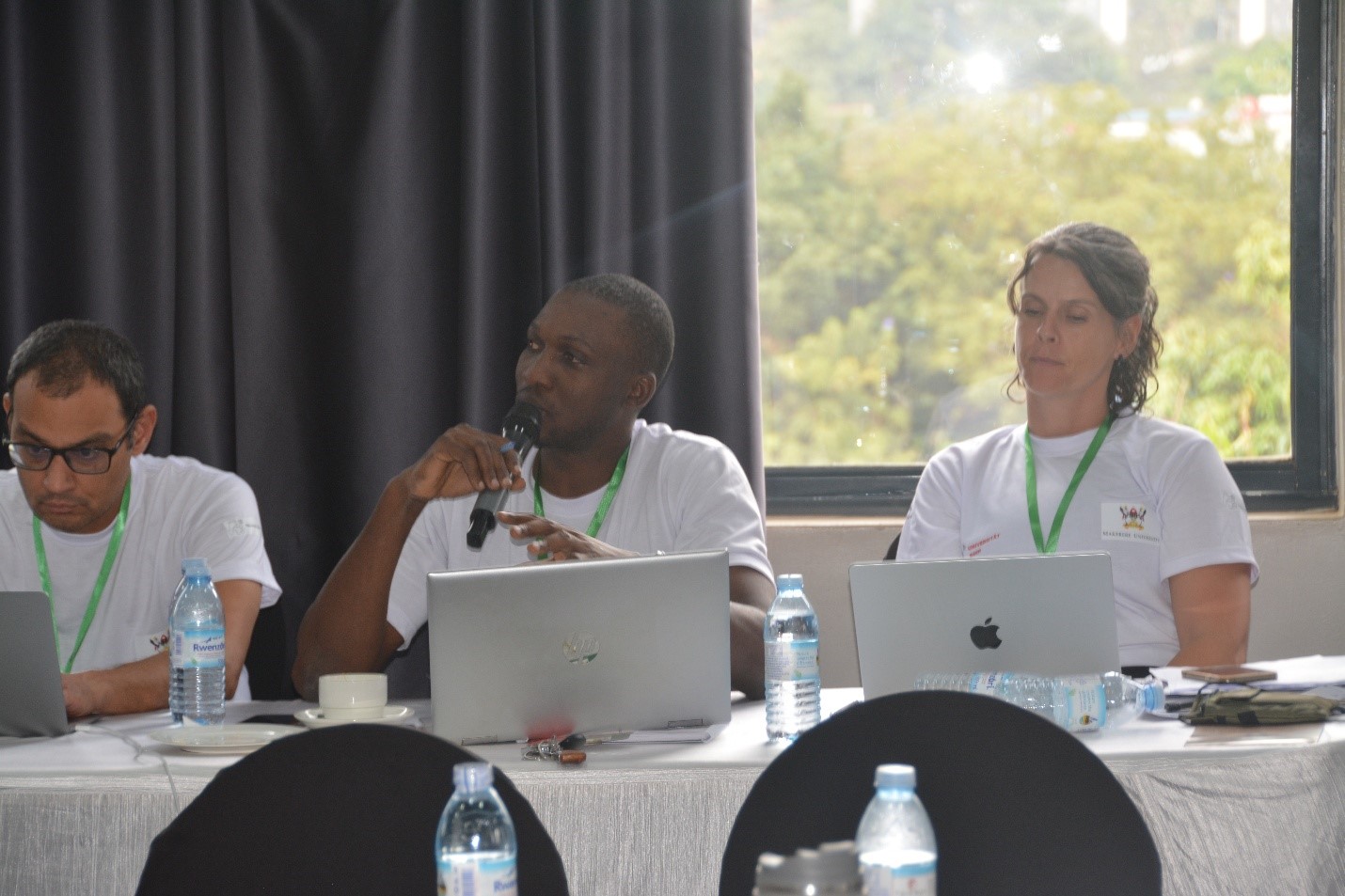
By Harriet Musinguzi


